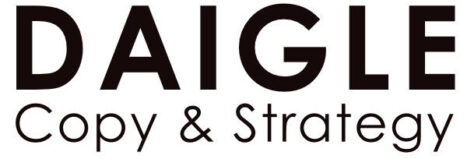Last year thousands of business owners marched into marketing meetings and told their creative teams, “Okay everyone, let’s fail, and let’s fail big!”
Okay, so maybe they didn’t use those exact words.
But they said other things that implied they simply didn’t understand the fundamentals of successful marketing.
And when a business owner doesn’t understand that, the best they can hope for is a mediocre response from their target audience.
Hope aside, they should expect utter marketing failure.
But the problem can be fixed. So, if you’ve ever uttered one of the following lines, hang in there.
We’ll get you off the failure freeway and start building bridges between your business and your customers.
How much is this going to cost?

Now, this isn’t a bad thing to say on its own. It’s when you say it. There’s a problem if you ask it at the front end of the meeting (or in an initial email).
Dave Harland mentioned in a LinkedIn post how this happened to him, and he’s worked with some of the biggest companies in the world.
So, it’s pretty standard, but that doesn’t make it any less dangerous. Here’s why.
When you start talking turkey first crack out of the box in a marketing meeting, you’re saying you want it done cheap.
You see, good copy should make you a lot more money than it costs. But if you ask for upfront pricing, you don’t see it that way.
Chances are, you’re justified because you’ve been shortchanged by a copywriter that wanted to be creative at the expense of getting your message across.
My heart goes out to you; it really does.
But there’s an easy fix. You can avoid it by demanding the following from your copywriter.
A Research Plan
Your copywriter needs to tell you the what, when, how, and why of their research strategy. I won’t go into the weeds on what a good one entails because you could literally write a book on it.
But if they don’t have one, deals off. Walk away.

Yep, just like that.
If they have a plan, but something sounds off, ask questions.
Design input
That’s right. I said design.
A good copywriter will know that lousy design kills good copy. So, he will naturally want to work closely with the designer to ensure the final product works.
If your copywriter just wants to send in copy via email and fade into the sunset, find another one.
Strategy, feedback, and if necessary, pushback
Copy without a plan is a waste of money, no matter how good it is. If your copywriter isn’t asking questions about the strategy for getting the copy in front of the right eyes, something is wrong.
On the flip side, you may be going in without a strong strategy or without one at all. I see it all the time.
In that case, the copywriter should ask questions and offer potential solutions.
She should also be pushing back on weak strategies and ideas. If they’ve done their research and can back it up, they probably know something even the business owner doesn’t.
That copywriter has potentially uncovered a shifting dynamic in your audience, and you need to at least listen to her insight. After all, that’s what you are paying her for.
This brings me to the next phrase of concern.
I’ll pay you .10 per word
Okay, two doozies here.
First, you don’t understand the difference between copywriting and content marketing.

That’s okay. It’s easy to confuse the two.
But let’s get clarity because not knowing the difference can create problems in your marketing strategy.
Copywriting is designed to get a reader to take a specific action soon after reading it. That may be getting the reader to learn more about your product, thinking about the product in a store, or simply getting them to click the “Buy Now” button.
It’s usually pretty short in modern-day advertising, like this example.

Content writing is designed to position your business as a subject matter expert and educate your readers. It’s also designed to get you found on the web using Search Engine Optimization. It might come in the form of a blog, newsletter, white paper, guide, or video script, to name a few.
Now, you may see a copywriter (like me) write content (like this), but the two are never the same, and you should never try to pay for copy on a per word basis.
Doing so will reveal the second problem. Namely, you treat words like a commodity, some necessary filler that isn’t really important.
“Well, can I offer to pay per word for content?”
You can. And you might find some takers. But there are several problems with that approach.
First, a good content writer is a good researcher. Research costs money, but it makes for content people want to read.
And because people read it, the article starts to position you higher and higher in search algorithms.
Good researchers that know how to write good content charge a premium, and most don’t operate on a per word basis.
But if they do, expect to pay $1 or more per word.
They’ll be worth it because you’ll get plenty of good exposure and positioning on the web. That can lead to sales and will definitely meet the strategic objectives associated with content writing.
On the other hand, someone charging .10 per word will most likely scan Google, reframe some main points and regurgitate some surface-level ideas people already know.
It probably won’t be engaging, so it won’t rank on Google. And your good deal is really just money wasted.
Worse, it may be more money than you had to pay because they stuffed the article with fluff. But, hey, each word is money, right?
So, how do you fix this problem?
First, determine if you need copy, content, or both and how much is needed in each area.
To do that, ask yourself a few basic questions about your ideal customer.
Are they new to your product? Is their problem complicated enough to warrant content writing?
Next, think about your product and your objectives.
Does your product require consumer education? Are you going for the sale, or are you trying to engender faith and trust from consumers, so they view you as the expert in your field?
Here’s an example.
Let’s compare the content and copy needs of Fatburger, a fast-food chain and Attentive, a SAAS company.
Fatburger leans toward something like this.
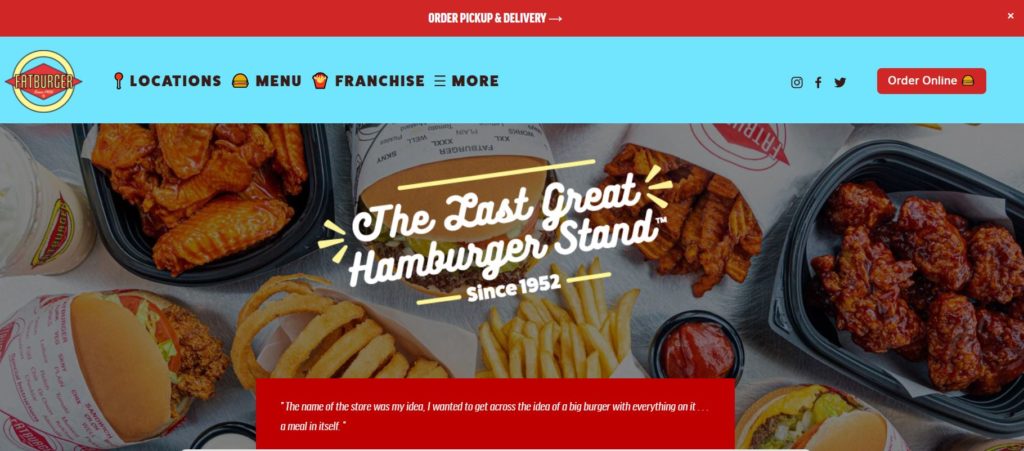
They don’t need content. Their ideal customer already gets the fast food concept. They need lots of great food photos and just a bit of copy to seal the deal.
That’s not the case with Attentive. Its offering is relatively new, and people can be easily confused by it.
So, when you open up their website, you see this.
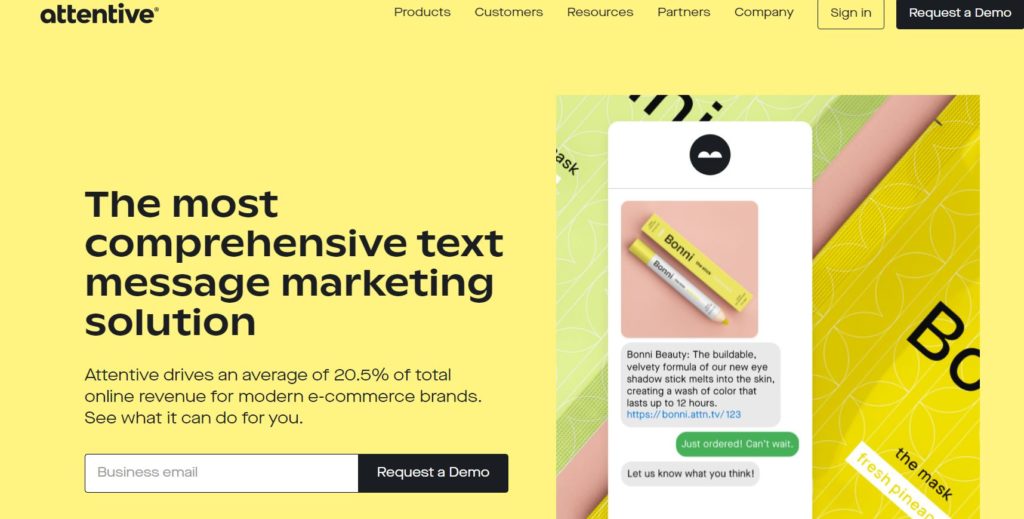
The copywriter catches your eye with a bit of clear, simple copy to capture your attention.
But he knows that immediately, two hundred eleventy five bazillion questions will start to crowd into the reader’s brain.
This is why when you click on the Resources tab, you get all this good stuff.
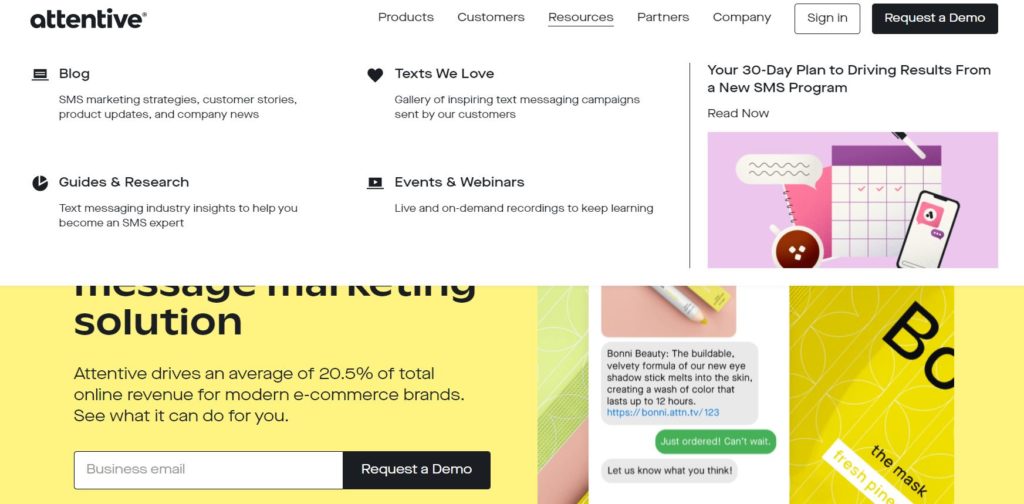
The strategy moves to content designed to answer consumer questions and position Attentive as the subject matter expert in this field.
Now, that’s some pretty slick marketing strategy, but you don’t have to make all these decisions yourself. A good copywriter should ask the right questions and offer solutions.
If they don’t, keep looking for one that does. But don’t dally and run up against a deadline that makes you ask this dreaded question.
Can I get this tomorrow?
I still get this one a lot. Unfortunately, I also get its terrible little cousin “I needed this yesterday.”
I used to try and be kind. But now, my reaction is…different.
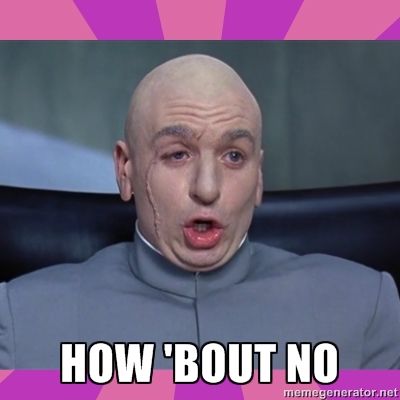
Just kiddin’. I keep calm.
In fact, if I’m familiar with the client, their product, and their customers, then hey, no big deal.
I can usually pull it off.
If I just started working with the client or just met them, I tend to go into teacher mode because one of two things is going on with the client.
A. Someone, somewhere in their organization, has serious time management issues (which I cannot help with)
B. They don’t understand how good copy is created (which I can help with)
Either way, the risk of a marketing failure is high, but if your issue is “B”, then here is what a good copywriter should say.
“I can have it for you in 20 minutes. Just know it probably won’t meet a single objective and will wind up being a huge waste of money. And I really won’t sleep well knowing I ripped you off.”
It’s a rip-off because compelling copy, like good content, requires excellent research.
A writer needs to know all about the company, all about the product, all about the customer, where they are on their buying journey, and a whole host of other factors.
No way that’s getting done overnight.
When David Ogilvy took on the Rolls Royce account, he researched for three weeks before writing a single word for the now iconic ad.
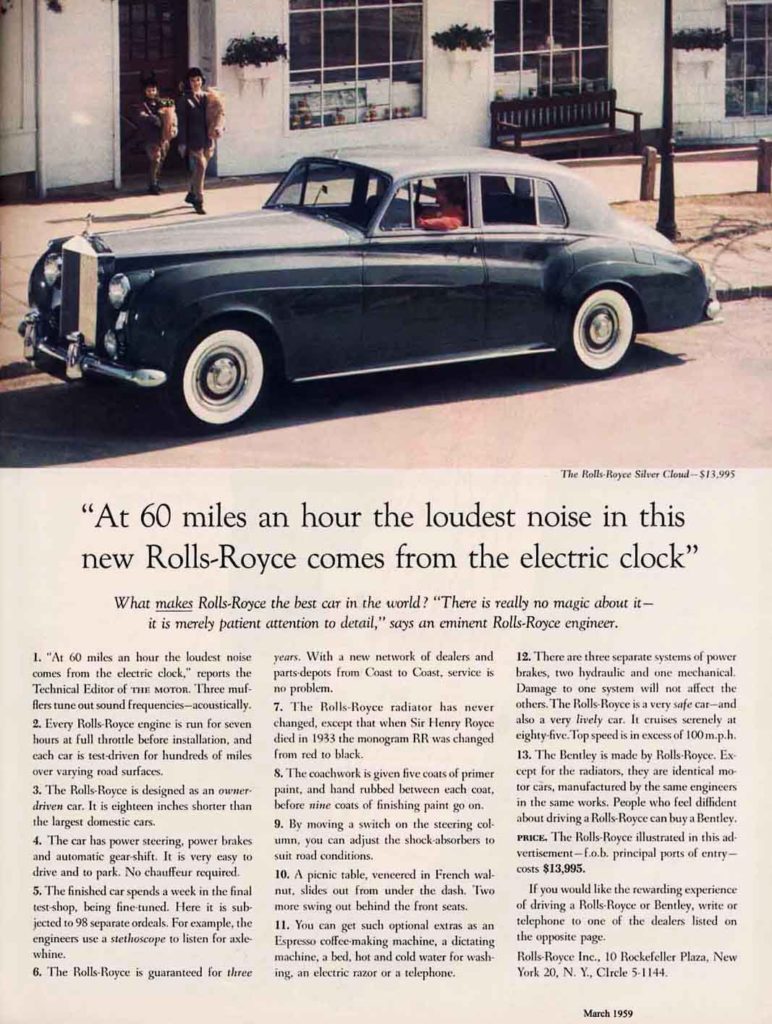
Then he wrote 26 headlines before selecting the very best one. After that, he wrote and rewrote the ad until the feature to benefit tie was so strong the reader wanted nothing more than to order a Rolls Royce.
End result? The ad ran for five years, and sales rose more than 50%.
That would not have happened with overnight copy.
That’s why when I’m working with a new client or a new product or service, they need to brace themselves for a long interview (or several short ones).
I’ll also want to interview existing customers. And I’m going to spend time with non-customers who are in their target audience. I’m going to find them, talk to them, and understand what exactly they want or need.
I will review any relevant marketing your company has done in the past, and I’ll do the same with your competition.
Then, I’ll start to write. If your copywriter isn’t doing that when you first hire them, there’s a problem.
Key Takeaways
To be successful in business, you’ll have to avoid as many marketing mistakes as possible. And the key to that is understanding what makes great copy and what it can do for your business.
If you can internalize the following facts, you’ll avoid many marketing mistakes and reach your business goals much faster.
1. Good copy never happens without good research.
2. Good copy can make you a buttload of money.
3. Good copy costs money, but not as much as you stand to make.
If you’ve made it this far, you are probably upset. But, that’s good because you recognize something is wrong with your marketing approach.
And that’s the moment when you can make things start to go right!
What do you think about this? Leave your comments below.
